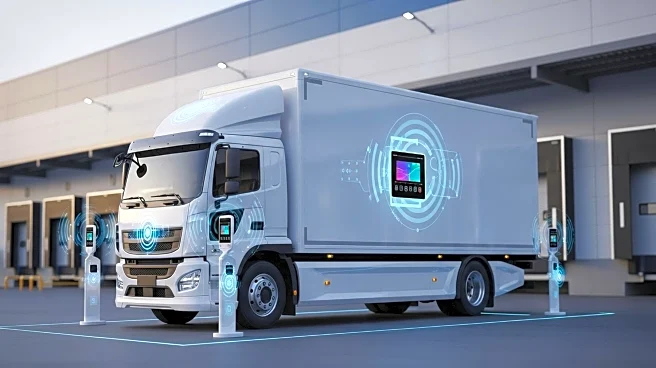What's Happening?
Pitt Ohio Transportation Group, based in Pittsburgh, has acquired Sutton Transport, aiming to improve customer service by increasing shipment density across its operational footprint. The integration of Sutton and Dohrn Transfer Company into a single entity, named Dohrn, allows the company to leverage advanced management technology. Alex Gustafson, VP of information systems at Dohrn, emphasized the importance of seamless customer integration, facilitated by applying Dohrn's existing technology stack to Sutton's operations. This integration aims to maintain customer visibility and ensure uniform pricing, tendering, and billing processes. Since 2002, Dohrn has utilized FACTS freight management software from Carrier Logistics, which is designed for less-than-truckload (LTL) fleets. This software has been instrumental in implementing process improvements, reducing administrative time and costs, and enhancing on-time service performance.
Why It's Important?
The integration of advanced technology in logistics operations is crucial for enhancing efficiency and customer satisfaction. By streamlining processes and improving visibility, Pitt Ohio and Dohrn can offer more reliable services, which is vital in the competitive transportation industry. The use of technology like electronic proof of delivery (POD) and automated billing processes not only reduces operational costs but also increases productivity, allowing the company to handle more transactions without additional staffing. This technological advancement positions Pitt Ohio and Dohrn as leaders in the logistics sector, potentially attracting more business and fostering growth.
What's Next?
As Pitt Ohio continues to integrate Sutton Transport and Dohrn Transfer Company, the focus will likely remain on optimizing technology use to further enhance customer service. The company may explore additional technological solutions to improve operational efficiency and expand its service offerings. Stakeholders, including customers and partners, can expect more streamlined processes and improved service delivery. The successful integration could also set a precedent for other companies in the logistics industry to adopt similar technological advancements.
Beyond the Headlines
The integration of technology in logistics not only impacts operational efficiency but also has broader implications for the industry. It highlights the growing importance of digital transformation in traditional sectors, encouraging other companies to innovate and adapt. This shift could lead to increased competition, driving further advancements in technology and service delivery standards. Additionally, the focus on technology may raise ethical considerations regarding data privacy and security, as companies handle more digital transactions and customer information.











